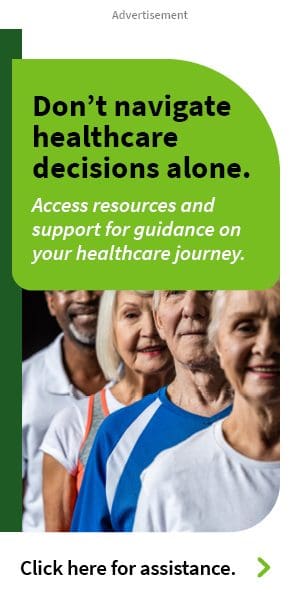Key Takeaways
- Medicare fraud can lead to significant financial and personal harm, but understanding the warning signs helps safeguard your information.
- Protecting yourself from Medicare fraud starts with being cautious about sharing your personal and Medicare details and staying informed about common scams.
Worried About Medicare Fraud? Here’s What to Look Out For and How to Keep Your Information Safe
Medicare is a vital program for millions of Americans, providing essential healthcare coverage. However, with its popularity and widespread use, it has also become a target for fraud. Fraudulent schemes not only harm the healthcare system but can also put your personal information at risk. Being proactive about understanding the warning signs of Medicare fraud and taking steps to protect yourself can help ensure that your coverage stays safe and secure.
What Is Medicare Fraud?
Medicare fraud occurs when someone knowingly deceives or misrepresents information to get unauthorized benefits or payments from the program. This type of fraud can take many forms, ranging from billing Medicare for services or equipment you never received to using your personal Medicare details without your permission. Medicare fraud affects everyone by driving up costs, potentially reducing the services available to honest beneficiaries.
Fraudsters may pose as legitimate healthcare providers or insurance agents, making it difficult to distinguish between genuine offers and scams. It’s important to remain vigilant and understand the various tactics they use.
Common Types of Medicare Fraud
Medicare fraud is not always easy to detect, but some common types of fraud include:
1. Billing for Services Not Provided
One of the most frequent types of Medicare fraud is when healthcare providers bill Medicare for services, tests, or equipment that you never actually received. You may not notice this if you don’t regularly check your Medicare statements. Always make sure that any claims filed under your name match the services you received.
2. Upcoding Services
Upcoding is a practice where healthcare providers bill Medicare for a more expensive service or procedure than the one you actually received. For example, if you received a simple medical checkup, but the doctor bills for a more complex (and expensive) procedure, they are committing fraud.
3. Unnecessary Medical Services
Some fraudulent providers may convince patients to undergo unnecessary treatments or tests, knowing that Medicare will foot the bill. These treatments may not be in your best interest and could even pose risks to your health.
4. Medical Identity Theft
Medical identity theft is when someone uses your personal information, including your Medicare number, to file false claims or to receive medical care. This is a particularly damaging type of fraud because it could result in incorrect information being added to your medical records, potentially affecting your future care.
Red Flags of Medicare Fraud
There are several warning signs that may indicate you are being targeted for Medicare fraud. Knowing what to look out for is essential in protecting yourself and your benefits.
1. Unsolicited Offers for Free Services
Scammers often lure victims by offering “free” medical services or equipment. These unsolicited offers may seem harmless, but they are a common tactic used to gather your personal information, including your Medicare number.
2. Unfamiliar Charges on Your Medicare Summary Notice (MSN)
Review your Medicare Summary Notices (MSNs) or Explanation of Benefits (EOB) closely for unfamiliar charges. Fraudsters may bill Medicare for services you didn’t receive, or they may overcharge for routine services. Discrepancies in these documents are a major red flag.
3. Suspicious Contact from Healthcare Providers
Be cautious if you receive calls or emails from someone claiming to be a healthcare provider or insurance agent who is asking for your personal information. Legitimate healthcare providers will never ask for your Medicare number over the phone unless you have a pre-established relationship with them.
4. Pressure to Act Quickly
Scammers may pressure you to make quick decisions or provide your Medicare number, warning that you’ll miss out on an important offer or service. Always take the time to verify who you are dealing with and never feel rushed into giving out your personal information.
Protecting Yourself from Medicare Fraud
Although Medicare fraud can be alarming, there are practical steps you can take to protect yourself and your personal information.
1. Guard Your Medicare Number
Treat your Medicare number as you would your Social Security number. Never give it out over the phone, in an email, or to someone you don’t know. Only share your Medicare number with trusted healthcare providers that you know have a legitimate reason for requesting it.
2. Review Your Medicare Documents
Regularly review your Medicare Summary Notices (MSNs) and Explanation of Benefits (EOB) for any charges or services you don’t recognize. If something seems off, contact Medicare or your provider to report potential fraud.
3. Avoid Unsolicited Offers
Be skeptical of unsolicited phone calls, emails, or door-to-door visits from people claiming to represent Medicare or offering medical services. Medicare will not contact you to offer services, and any unexpected offers should be viewed with caution.
4. Shred Sensitive Documents
Before discarding any medical records, billing statements, or other documents containing your personal information, make sure to shred them. This helps prevent identity thieves from accessing your sensitive details through discarded paperwork.
5. Report Suspicious Activity
If you suspect that you have been the target of Medicare fraud, don’t hesitate to report it. You can contact Medicare directly, the Federal Trade Commission (FTC), or the Office of the Inspector General (OIG) to report suspected fraud and protect your benefits.
How to Report Medicare Fraud
If you believe that you have encountered Medicare fraud, taking immediate action can help limit its impact. Here’s what you should do:
1. Call Medicare
The first step is to call Medicare’s toll-free number at 1-800-MEDICARE (1-800-633-4227). Provide them with the details of the suspicious activity, and they will help guide you on how to resolve the issue.
2. Contact the Office of Inspector General (OIG)
You can also report suspected Medicare fraud to the U.S. Department of Health and Human Services (HHS) Office of Inspector General (OIG) by calling their fraud hotline at 1-800-HHS-TIPS (1-800-447-8477) or visiting their website to file a complaint.
3. Notify the Federal Trade Commission (FTC)
In cases of medical identity theft, you may also want to file a report with the Federal Trade Commission (FTC). This will help ensure that your identity is protected moving forward, and the FTC can provide additional resources to help you recover from identity theft.
Staying Informed: The Key to Preventing Medicare Fraud
Education is one of the best tools in preventing Medicare fraud. By staying informed about the latest scams and understanding the common tactics fraudsters use, you can significantly reduce your risk of becoming a victim. Medicare fraud is a serious issue, but with the right precautions, you can keep your information safe and ensure that your benefits are protected.
Medicare also offers resources to help beneficiaries stay aware of fraud, including the Medicare.gov website and local resources such as Senior Medicare Patrols (SMPs). These organizations provide valuable assistance in identifying and reporting Medicare fraud.
Ensuring Your Peace of Mind
Staying vigilant and proactive in safeguarding your Medicare information is essential for protecting yourself from fraud. By recognizing the warning signs and taking steps to secure your personal data, you can reduce your risk of becoming a target. Remember to regularly check your Medicare documents, guard your Medicare number, and report any suspicious activity immediately. Your vigilance can make a significant difference in keeping your information safe and secure.
Contact Information:
Email: [email protected]
Phone: 7735555678










